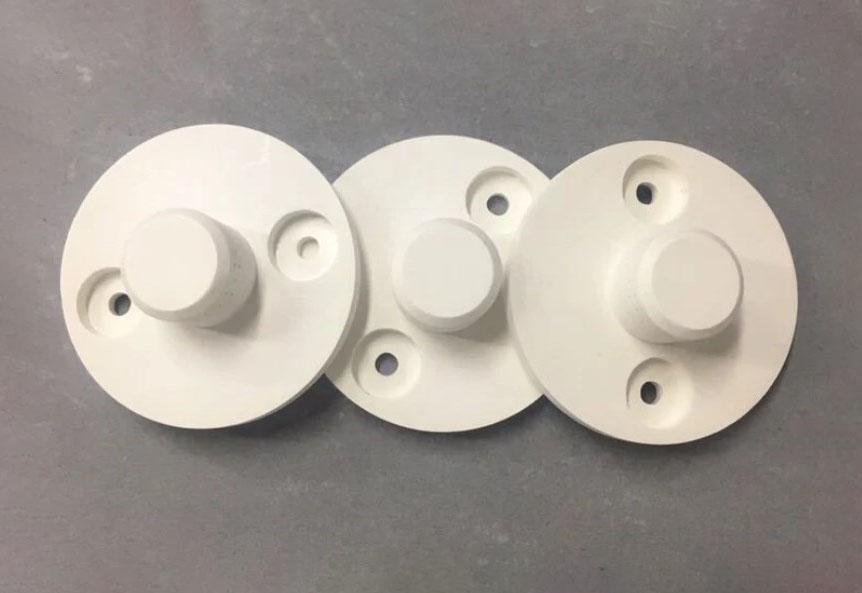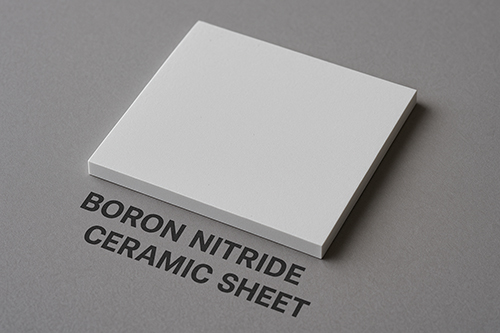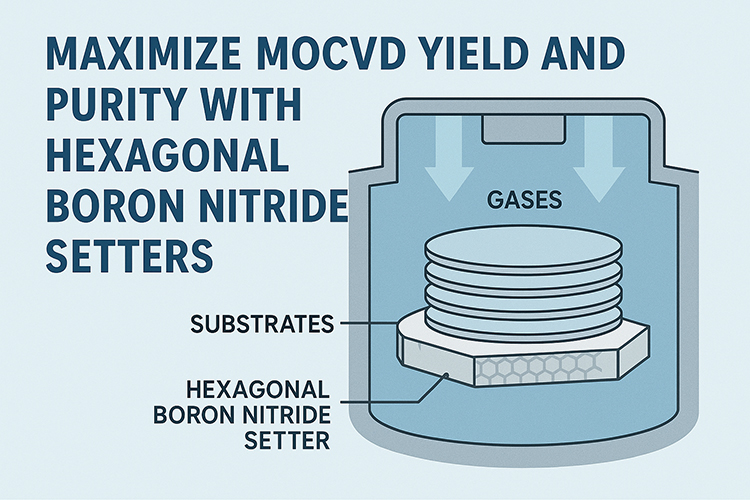Boron Nitride Spacers in Glass Melting

Introduction
The glass manufacturing industry relies on cutting-edge materials and technologies to produce high-quality products. In this quest for excellence, boron nitride plates and sheets have emerged as vital components. Boron nitride serves as an excellent spacer material in the glass industry. And it enhances the manufacturing process and product quality. This article will explore the remarkable properties of boron nitride and its applications as spacers in glass melting.
The Role of Spacers in Glass Melting
Glass manufacturing is a delicate process that requires precise temperature control and uniform heat distribution. Spacers are crucial in ensuring that glass sheets or products are evenly heated during the melting process. These spacers maintain the necessary gap between glass surfaces and allow for efficient and uniform heat transfer.
Traditionally, materials like alumina, mica, and other ceramics were used as spacers. However, with advancements in materials science, boron nitride has emerged as an exceptional alternative.
Figure 1. Boron Nitride Spacers
Exceptional Properties of Boron Nitride
Boron nitride is often referred to as the "white graphite.” It shares some similarities with carbon graphite in terms of its atomic structure. Yet, its properties set it apart as a unique material for glass manufacturing and other industrial applications.
1. High Thermal Conductivity: Boron nitride exhibits excellent thermal conductivity, so it has become an ideal choice for spacers in glass melting. It efficiently transfers heat and ensures uniform heating of glass products.
2. Thermal Stability: Boron nitride remains stable at high temperatures, making it a durable spacer material. It can withstand the extreme heat of glass melting processes without degradation.
3. High Purity: Boron nitride is available in high-purity forms. That’s essential in glass manufacturing to prevent contamination and maintain the quality of glass products.
4. Low Coefficient of Friction: Its low coefficient of friction ensures that boron nitride spacers easily slide into position without causing damage to delicate glass surfaces.
Applications of Boron Nitride in Glass Melting
Boron nitride plates/sheets have found extensive use in the glass manufacturing industry, particularly in processes like float glass production. The use of boron nitride spacers has several advantages:
1. Improved Quality: Boron nitride spacers contribute to the consistent heating of glass. Then, we can get higher quality, defect-free glass products with uniform thickness.
2. Energy Efficiency: The efficient heat transfer properties of boron nitride reduce energy consumption during glass melting processes.
3. Reduced Contamination: High-purity boron nitride prevents contamination, ensuring the final glass products meet stringent quality standards.
4. Longer Equipment Lifespan: Boron nitride's thermal stability and resistance to high temperatures enhance the longevity of glass manufacturing equipment.
Conclusion
Boron nitride plates/sheets have revolutionized the glass melting industry since they provide an innovative and effective solution for maintaining uniform heating during glass production. With their exceptional thermal conductivity, stability, and low friction properties, boron nitride spacers contribute to high-quality glass products and increased energy efficiency. As the glass manufacturing industry continues to advance, boron nitride remains a valuable material, showcasing its vital role in producing flawless glass products.
For high-quality boron nitride plates/sheets and other ceramic materials, you can trust Advanced Ceramic Materials (ACM) as a reliable supplier dedicated to meeting the needs of various industries. Whether in glass manufacturing or other high-tech sectors, ACM provides advanced ceramic solutions to support your innovation and progress.
{{item.content}}
LEVE A REPLY
{{item.children[0].content}}
{{item.content}}
LEAVE A REPLY
SUBSCRIBE OUR NEWSLETTER
- Boron Nitride in Cosmetics: Enhancing Performance and Sensory Appeal
- Maximize MOCVD Yield and Purity with Hexagonal Boron Nitride Setters
- What Are the Advantages and Uses of Boron Nitride Ceramic Sheet?
- The Compression Annealing Advantage for Pyrolytic Boron Nitride
- Beyond Insulation: The Surprising Spectrum of Ceramic Thermal Conductivity











